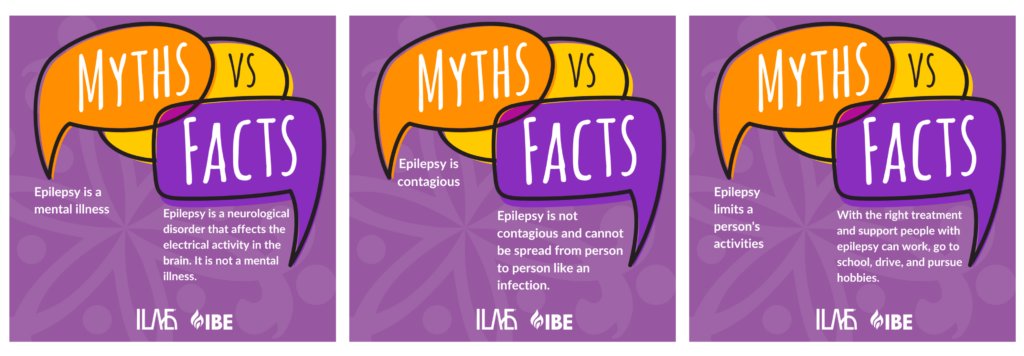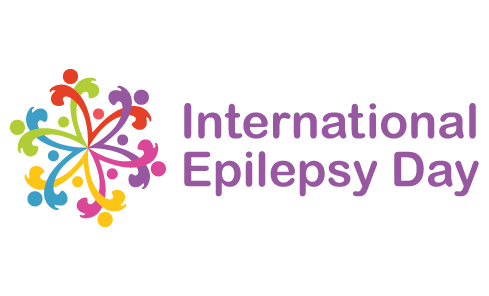Today is International Epilepsy Day. Every year epilepsy is recognised on the second Monday of February, this year the focus is on recognising the stigma that people with epilepsy face.
What is epilepsy?
Epilepsy is derived from the Greek verb epilambanein – meaning to seize, to take hold of or to attack. It is a neurological condition that affects both children and adults. It is characterised by unpredictable seizures and other health problems. Not everyone who has a seizure has epilepsy – a diagnosis of epilepsy is only given if a person has a tendency of recurring seizures. It is estimated that more than 50 million people around the world are living with epilepsy.
“Epilepsy is a disease in the shadows. Patients are often reluctant to admit their condition even to close family, friends or co-workers because there’s still a great deal of stigma and mystery surrounding the disease that plagued such historical figures as Julius Caesar, Edgar Allan Poe and Lewis Carroll.” – Lynda Resnick, Author and Business Woman
A seizure occurs when there is a sudden burst of intense electrical activity in the brain. Because these seizures can occur anywhere in the brain, the effects will differ from person to person, which accounts for the many different types of seizures. There is no one definitive cause of epilepsy, it can be due to a genetic disorder, head trauma or brain tumour.
Dispelling the Myths
There are often myths, misconceptions and a lack of understanding about epilepsy that can lead to stigma and exclusion. Let us help dispel these myths and improving understanding of epilepsy!
How can physiotherapy help?
People with epilepsy should include exercise as a complementary therapy – not only for seizure control but also for non-seizure conditions such as physical health promotion and psychosocial adjustment and improvement in mental state. Physiotherapists can encourage people to exercise and assist in removing barriers to exercise.
- Exercise improves fitness, energy and mood and relieves stress.
- Improving overall health and wellbeing in this way can help reduce seizures and the impact of epilepsy for some people. It also makes people feel more in control of their health.
- Exercise releases ‘feel good’ hormones into the brain, helps to keep the muscles active, reduces fat levels in the body and increases oxygen flow to the brain. It can also increase bone density.
- The neuroprotective and antiepileptogenic actions of exercise strengthen the role of exercise intervention as complementary non pharmacological treatment of epilepsy.
What can you do?
Raising awareness of epilepsy will reduce the stigma that people often encounter. Get fully informed so that you can contribute by reading more about epilepsy on our Physiopedia page. As well as rehabilitation advice you can give, you will learn more about the different types of epilepsy, how it is diagnosed and the treatments that are available.
If you are well informed about epilepsy you can help to dispel the myths and contribute to ending the stigma. On social media don’t forget to use the hashtags #EpilepsyIs and #EpilepsyDay